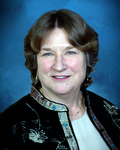The social work profession is made up of a diverse group of professionals who respond to and prevent crises. You may have an image in your mind 0f social workers on television, who only do home visits for families. In fact, social workers specialize in one or more of over 40 practice areas and work in a variety of practice settings. One of the specializations is clinical social work. We spoke with Doris Tomer, LCSW, ACSW, BCD, about her educational and professional experience as a clinical social worker and therapist.
ExploreHealthCareers.org (EHC): Tell me a bit about clinical social work. What makes it so specialized?
 Doris Tomer (DT): Social work is such a broad field and people can go into a lot of different areas. A clinical social worker, formerly known as a psychiatric social worker, is a health care profession and clinical profession that assesses, diagnoses and treats in the prevention of mental illness and mental disturbances.
Doris Tomer (DT): Social work is such a broad field and people can go into a lot of different areas. A clinical social worker, formerly known as a psychiatric social worker, is a health care profession and clinical profession that assesses, diagnoses and treats in the prevention of mental illness and mental disturbances.
Clinical social workers can work in hospitals and private practices. My first job was in a mental health center located in a community hospital. I got more specialized in a psychiatric facility while working with psychologists and psychiatrists.
In the hospital, I worked on a team where we all had different tasks. The psychiatrist prescribed the medication, the psychologist focused on intrapsychic solutions and I would look at the person’s whole environment, including social, work and family. It’s a focus on the assessment, diagnosis, treatment and prevention of these mental illnesses.
EHC: What inspired you to enter in this field?
DT: I like people. I was always curious why they do what they do and think how they think. As a kid, I loved reading biographies and was interested in my friends’ large families filled with distant relatives. In college, I was a sociology major and loved my psychology classes, so I graduated as a sociology major with a psychology minor.
After I graduated, I had an internship with a probation department and worked as a probation officer for adolescent girls. I became interested in working with family dynamics and then went back to school to get my MSW.
EHC: For therapy, what was your educational plan?
DT: I didn’t start out saying I was going to be clinical social worker, but after some experiences, I kind of just fell into it. When I started going into MSW — and with my experience as a probation officer — I thought I might go back into the criminal justice system. But my horizons expanded and it was realistic that with my MSW I would be at a higher level as an administrator. I didn’t want to lose direct contact and direct care.
EHC: Can you describe your experience and professional journey?
DT: At one point, there was a woman’s college near the hospital in which I worked. I knew there was a suicide the previous year and the school wanted more services. I was starting to plan for having a family and yet I found myself becoming the director of a counseling center, where I stayed for a number of years. I also taught a course each semester about families and another one about the treatment of eating disorders. When I was teaching, I was able to talk about the things I was doing clinically and some students were interested in that.
I was raising two sons and working for the college, and I hit a point when I wanted to go full-time and start a practice. Eventually, I took over the first floor of the office building and I have been full-time in my own practice in that office since 1992. I’ve really enjoyed having my own space. I stay connected with social workers and get together and share business ideas and discuss issues.
I feel very fortunate that I enjoy what I do. At 71 years old, I am now a bit more selective of patients and can create my own schedule.
What do your day-to-day tasks look like?
DT: Every day is different. Sometimes I make house visits or visit hospitals. The biggest challenge is the running of a business – something I was not trained in – while maintaining my career. I had to learn how to maintain my schedule, manage billing and manage insurance.

I was not trained in some of the newest technology, but now I have people to help me with that. For example, I have more information available about me on PsychologyToday. I now have more clients because of personal recommendations who Googled me and found me on the site. I was picked once because someone said I had kind eyes in my photo! Technology was something I had to learn about and evolve with.
Some days, I may see six people. Sometimes I may see four. It can vary from day to day. At certain times, I get a steady stream and sometimes it is slow. It is unpredictable, but I enjoy doing what I’m doing.
EHC: Do you have any tips for students interested in going into a health care career, or specifically into a social work career?
DT: Know that there are many options, I say this to my patients as well. You gather information and at some point things feel right, intuitively. Some people go into social work more for of an administrative track or for a direct service track. Keep your options open. Know yourself.
EHC: What do you wish you knew before you chose to study this field?
DT:Business training and technology. I couldn’t have known that. Some of things that are frustrating are billing and insurance, especially the fact that all of it has to be done online. Some people will pay someone to do these tasks – but I am a one-person office.
EHC: Was there a moment when it was confirmed for you that this was the job you were meant to have?
DT: I have no regrets. I feel very fortunate to be in this career. A lot of adolescent girls were not happy to come see me when I started out as a probation officer, but I stuck with them anyway. Several years later they would come back and tell me, “You said something a long time ago and it really meant a lot to me.” There are some people who come back to have me meet their families. You never know what you may have said to someone that helped out. It is helpful to talk to someone and think through things with you. It helps my patients develop coping skills.

EHC: Are there any classes, programs, or activities that are not directly related to that have helped you succeed in this healthcare career?
DT: I did get a post-grad part-time training in family systems. I did this while working and raising my sons. It was a personally and professionally meaningful experience.
EHC: How do you stay up to date on happenings in clinical social work?
DT: I go to workshops. I am a part of the National Association of Social Workers (NASW) and have become much more involved. I also volunteer with many American medical societies. I am involved with the New York State Society for Clinical Social Work (NYSSCSW). I have served on a committee, so I have kept involved.
Are you interested in learning more about those who work in the social work field? Check out our interviews with doctoral student Tyese Brown, LMSW MA, and social work education professional Heather Marshall, MSW. If you are ready to apply for your MSW, get started with the Council on Social Work Education (CSWE)’s centralized application service, SocialWorkCAS.
